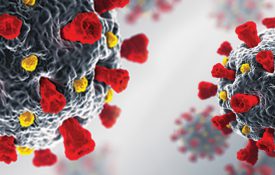-
A Good Life is Painful
Can we live a good life without suffering? Notice that I used the word “good” and not “happy.” It doesn’t make any sense to ask whether we can suffer and be happy at the same time, but can we live a full and meaningful life without certain kinds of suffering? That’s a much harder question. I just watched an episode of The Twilight Zone that explores this in a way only that show could. It’s about a gangster who dies and wakes up in a place that has all the markings of heaven — or at least what a guy like that would imagine as heaven. He has all the sex and money and power he wants. He loves it at first. But then he grows bored and aimless and starts to hate it.
-
Why Rethinking Our Ideas Means We’re Growing
MANOUSH ZOMORODI, HOST: It's the TED Radio Hour from NPR. I'm Manoush Zomorodi. On the show today, changing our minds. OK, so let's talk about rethinking our ideas, our principles. Adam, what have you found? Is it good for us? Can it even make us happy? ADAM GRANT: Well, Manoush, I don't think that rethinking always makes you happy, but failing to think again is a recipe for misery. I can't tell you how many students I've had, for example, who decide, you know, like at age 3 1/2, I must be a doctor or a lawyer. And they don't bother to question that until they're long through med school or law school. They're like, but I hate this, but this is my identity.
-
A Guide to Holiday Tipping This Year
Tipping during the holidays is a time-honored tradition, but because there are no hard and fast rules, it can end up being one more stressful holiday chore. Here are some suggestions from etiquette and tipping experts to reduce some of the worry. “There is no authority that sets the norms,” said Michael Lynn, a professor of consumer behavior and marketing at Cornell University’s School of Hotel Administration who has studied tipping. Tipping service workers has centuries-old roots, and may have emerged as a way for tavern patrons to “forestall envy” while they imbibed, Professor Lynn said.
-

Better Behavior With Virtual Reality
Mel Stater, a researcher with the University of Barcelona and author on a paper published in the journal Current Directions in Psychological Science, explains how we might foster prosocial behavior with virtual reality.
-

Mental Health in a Global Pandemic: Lessons Learned From Psychological Science
Nearly 2 years into the COVID-19 pandemic, an emerging body of literature is revealing the pandemic’s mental health impact on children, adolescents, and adults, including those who had previously been diagnosed with a mental illness.
-
Position Statement on Academic Freedom
The Association for Psychological Science (APS) affirms the value of academic freedom, which is the freedom of academic psychological scientists—and those from other disciplines—to produce and disseminate knowledge through research, teaching, practice, and service without undue constraint. Academic freedom is essential to advance the common good and the search for truth. APS Members must comply with all relevant codes of ethical behavior in psychological science with respect to the pursuit of academic freedom. Adapted from the April 2013 statement of the Association of American Universities and the mission of the American Association of University Professors.

